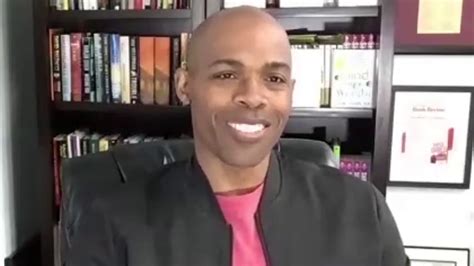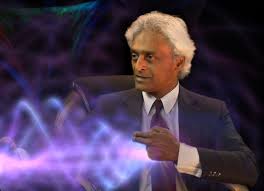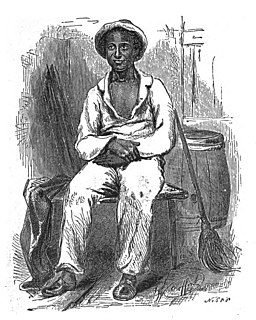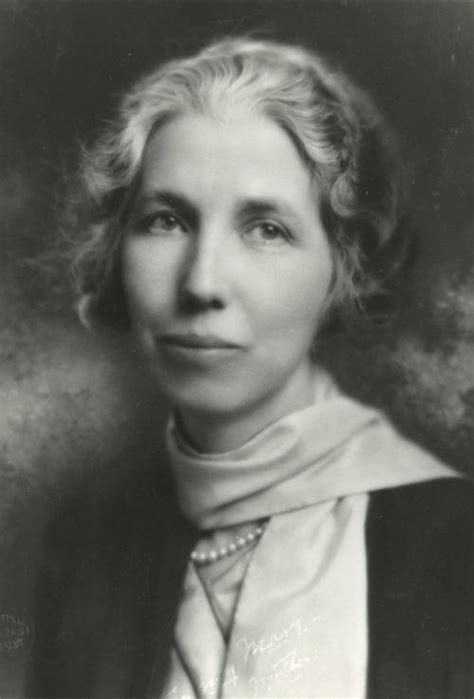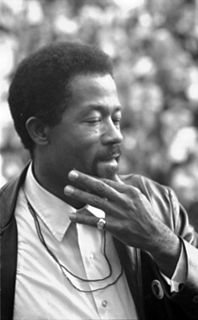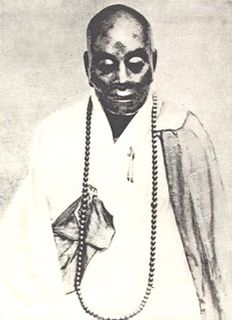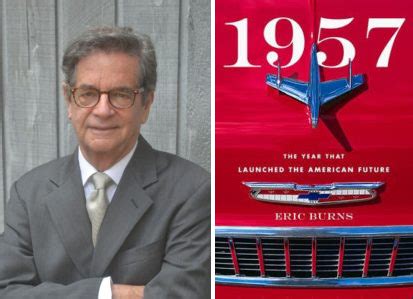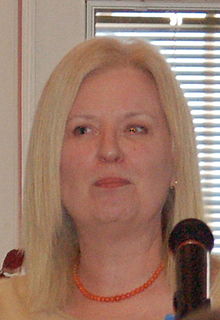Top 1200 Midst Quotes & Sayings - Page 20
Explore popular Midst quotes.
Last updated on April 15, 2025.
I want to remind priests that the confessional must not be a torture chamber but rather an encounter with the Lord’s mercy which spurs us on to do our best. A small step, in the midst of great human limitations, can be more pleasing to God than a life which appears outwardly in order but moves through the day without confronting great difficulties. Everyone needs to be touched by the comfort and attraction of God’s saving love, which is mysteriously at work in each person, above and beyond their faults and failings.
Provided they live a worthy life, both those who choose to dwell in the midst of noise and hubbub and those who dwell in monasteries, mountains and caves can achieve salvation. Solely because of their faith in Him God bestows great blessings on them. Hence those who because of their laziness have failed to attain salvation will have no excuse to offer on the day of judgment. For He who promised to grant us salvation simply on account of our faith in Him is not a liar.
These really are our days, and we can prevail and overcome, even in the midst of trends that are very disturbing. If we are faithful the day will come when those deserving pioneers and ancestors, whom we rightly praise for having overcome the adversities in the wilderness trek, will praise today’s faithful for having made their way successfully through a desert of despair and for having passed through a cultural wilderness, while still keeping the faith.
Imagine a master painting that's never finished...when you can only build on previous work, you become limited by what you can paint...If you are in the midst of painting a forest full of tall tress and hanging vines, it is rather difficult to wake up the next day and suddenly turn that paining into the beach and ocean...We have to treat each day like a black canvas on which we can paint. Yesterday might have been paining flowers, but today you can paint cars or horses. A new day represents a chance for renewal.
We need Goddess consciousness to reveal earth's holiness. Divine feminine imagery opens up the notion that the earth is the body of the Divine, and when that happens, the Divine cannot be contained solely in a book, church, dogma, liturgy, theological system, or transcendent spirituality. The earth is no longer a mere backdrop until we get to heaven, something secondary and expendable. Mater becomes inspirited; it breathes divinity. Earth comes alive and sacred. And we find ourselves alive in the midst of her and forever altered.
Surely as a man may say of a rock--nothing more quiet, because it is never stirred; and yet nothing more unquiet, because it is ever assaulted--so we may say of the church--nothing more peaceable, because it is established upon a rock; and yet nothing more unpeaceable, because that rock is in the midst of seas, winds, enemies, and persecutions.
The man who boldly transgresses, amassing a great heap unjustly--by force, in time, he will strike his sail, when trouble seizes him as the yardarm is splintered. He calls on those who hear nothing and he struggles in the midst of the whirling waters. The god laughs at the hot-headed man, seeing him, who boasted that this would never happen, exhausted by distress without remedy and unable to surmount the cresting wave. He wrecks the happiness of his earlier life on the reef of Justice, and he perishes unwept, unseen.
The idea of suicide, understandable as it is, does not seem commendable to me. We live in order to gain the greatest possible amount of spiritual development and self-awareness. As long as life is possible, even if only in a minimal degree, you should hang onto it, in order to scoop it up for the purpose of conscious development. To interrupt life before its time is to bring to a standstill an experiment which we have not set up. We have found ourselves in the midst of it and must carry it through to the end.
Our respect for the dead, when they are just dead, is something wonderful, and the way we show it more wonderful still. We show it with black feathers and black horses; we show it with black dresses and black heraldries; we show it with costly obelisks and sculptures of sorrow, which spoil half of our beautiful cathedrals. We show it with frightful gratings and vaults, and lids of dismal stone, in the midst of the quiet grass; and last, and not least, we show it by permitting ourselves to tell any number of falsehoods we think amiable or credible in the epitaph.
For 2,000 years, the Church has been the cradle in which Mary places Jesus and entrusts Him to the adoration and contemplation of all peoples. May the humility of the Bride cause to shine forth still more brightly the glory and power of the Eucharist, which she celebrates and treasures in her heart. In the sign of the consecrated Bread and Wine, Christ Jesus risen and glorified, the light of the nations, reveals the enduring reality of His Incarnation. He remains living and real in our midst in order to nourish the faithful with His Body and Blood.
Perhaps the single most powerful event facing humanity today is a great awakening on a planetary scale that has been millennia in the making. We humans are in the midst of a profound advance as a species to a higher form of global consciousness that has been emerging across cultures, religions and worldviews through the centuries. This awakening of global consciousness is nothing less than a shift, a maturation, from more egocentric patterns of life to a higher form of integral and dialogic patterns of life.
I used to analyze myself down to the last thread, used to compare myself with others, recalled all the smallest glances, smiles and words of those to whom I’d tried to be frank, interpreted everything in a bad light, laughed viciously at my attempts ‘to be like the rest’ –and suddenly, in the midst of my laughing, I’d give way to sadness, fall into ludicrous despondency and once again start the whole process all over again – in short, I went round and round like a squirrel on a wheel.
The hostility of this landscape teaches me how to be quiet and unobtrusive, how to find grace among spiders with a poisonous bite. I sat on a lone boulder in the midst of the curlews. By now, they had grown accustomed to me. This too, I found encouraging-that in the face of stressful intrusions, we can eventually settle in. One begins to almost trust the intruder as a presence that demands greater intent toward life. On a day like today when the air is dry and smells of salt, I have found my open space, my solitude, and sky. And I have found the birds who require it.
But how do European railways manage without them? How do they continue to convey millions of travellers and mountains of luggage across a continent? If companies owning railways have been able to agree, why should railway workers, who would take possession of railways, not agree likewise? And if the Petersburg-Warsaw Company and that of Paris-Belfort can act in harmony, without giving themselves the luxury of a common commander, why, in the midst of our societies, consisting of groups of free workers, should we need a Government?
In bullfighting there is an interesting parallel to the pause as a place of refuge and renewal. It is believed that in the midst of a fight, a bull can find his own particular area of safety in the arena. There he can reclaim his strength and power. This place and inner state are called his querencia. As long as the bull remains enraged and reactive, the matador is in charge. Yet when he finds his querencia, he gathers his strength and loses his fear. From the matador's perspective, at this point the bull is truly dangerous, for he has tapped into his power.
A laugh lifestyle is predicated upon our attitude toward the daily stuff of life. When those tasks seem too dull to endure, figure out a way to make them fun; get creative and entertain yourself. If the stuff of life for you right now is not dull and boring but instead painful and overwhelming, find something in the midst of the pain that makes you smile or giggle anyway. There's always something somewhere. . . even if you have to just pretend to laugh until you really do!
Spiritual knowledge is like a house built in the midst of secular and pagan knowledge, in which there is laid up, like a solid and well-secured chest, the knowledge of the inspired Scriptures and the inestimable riches they contain. Those who enter into the house will never at all be able to see those treasures unless this chest is opened for them. But it does not belong to human wisdom (cf. I Cor. 2:13) ever to be able to open it, so that the riches of the Spirit deposited in it remain unknown to all who are worldly.
It is therefore, the interest of all, that every one, from birth, should be well educated, physically and mentally, that society may be improved in its character, - that everyone should be beneficially employed, physically and mentally, that the greatest amount of wealth may be created, and knowledge attained, - that everyone should be placed in the midst of those external circumstances that will produce the greatest number of pleasurable sensations, through the longest life, that man may be made truly intelligent, moral and happy, and be thus prepared to enter upon the coming Millennium.
We have all of us free access to all that is great, and good, and happy, and carry within ourselves a key to all the treasures that heaven has to bestow upon us. We starve in the midst of plenty, groan under infirmities, with the remedy in our own hand; live and die without knowing and feeling anything of the One only God, whilst we have it in our power to know and enjoy it in as great a reality as we know and feel the power of this world over us; for Heaven is as near to our souls as this world is to our bodies; and we are created, we are redeemed, to have our conversation in it.
Reachable, near and not lost, there remained in the midst of the losses this one thing: language. It, the language, remained, not lost, yes, in spite of everything. But it had to pass through its own answerlessness, pass through frightful muting, pass through the thousand darknesses of deathbringing speech. It passed through and gave back no words for that which happened; yet it passed through this happening. Passed through and could come to light again, “enriched” by all this.
Voices of the glorified urge us onward. They who have passed from the semblances of time to the realities of eternity call upon us to advance. The rest that awaits us invites us forward. We do not pine for our rest before God wills it. We long for no inglorious rest. We are thankful rather for the invaluable training of difficulty, the loving discipline of danger and strife. Yet in the midst of it all the prospect of rest invites us heavenward. Through all, and above all, God cries, "Go forward!" "Come up higher!
Yes, God loves you this very day and always. He is not waiting to love you until you have overcome your weaknesses and bad habits. He loves you today with a full understanding of your struggles. He is aware that you reach up to Him in heartfelt and hopeful prayer. He knows of the times you have held onto the fading light and believed-even in the midst of growing darkness. He knows of your sufferings. He knows of your remorse for the times you have fallen short or failed. And still He loves you.
The great gift of a spiritual path is coming to trust that you can find a way to true refuge. You realize that you can start right where you are, in the midst of your life, and find peace in any circumstance. Even at those moments when the ground shakes terribly beneath you—when there’s a loss that will alter your life forever—you can still trust that you will find your way home. This is possible because you’ve touched the timeless love and awareness that are intrinsic to who you are.
I pray for my nation, South Africa. As Jesus stood in the boat and commanded the storms to be calm, I stand in the midst of the storm in my nation, South Africa and I command the storm, wind and waves to be calm, in the name of Jesus! I speak calmness to my nation, South Africa, in the name of Jesus!
What if it is for life's sake that we must die? In truth we are not individuals; and it is because we think ourselves such that death seems unforgivable. We are temporary organs of the race, cells in the body of life; we die and drop away that life may remain young and strong. If we were to live forever, growth would be stifled, and youth would find no room on earth. Death, like style, is the removal of rubbish, the circumcision of the superfluous. In the midst of death life renews itself immortally.
The animals share with us the privilege of having a soul Alas, what wickedness to swallow flesh into our own flesh, to fatten our greedy bodies by cramming in other bodies, to have one living creature fed by the death of another! In the midst of such wealth as earth, the best of mothers, provides, yet nothing satisfies you, but to behave like the Cyclopes, inflicting sorry wounds with cruel teeth! You cannot appease the hungry cravings of your wicked, gluttonous stomachs except by destroying some other life.
At such times, the heart of man turns instictively towards his Maker. In prosperity, and whenever there is nothing to injure or make him afraid, he remembers Him not, and is ready to defy Him; but place him in the midst of dangers, cut him off from human aid, let the grave open before him, then it is, in the time of his tribulation, that the scoffer and unbelieving man turns to God for help, feeling there is no other hope, or refuge, or safety, save in his protecting arm.
Katherine it was who took upon herself the complete charge of [Junior's] speech. Not an insignificant "have went" nor an infinitesimal "I seen" ever escaped the keen ears of his eldest sister, who immediately corrected him. Mother sometimes thought Katherine a little severe when, in the interest of proper speaking, she would stop him in the midst of an exciting account of a home-run. There were times, thought Mother, when the spirit of the thing was so much more important than the flesh in which it was clothed.
I am reminded of a story of Lord Krishna when he was a cowherd. Every night he invites the milkmaids to dance with him in the forest. They come and they dance. The night is dark, the fire in their midst roars and crackles, the beat of the music gets ever faster - the girls dance and dance and dance with their sweet lord, who has made himself so abundant as to be in the arms of each and every girl. But the moment the girls become possessive, the moment each one imagines that Krishna is her partner alone, he vanishes. So it is that we should not be jealous of God.
Confined on the ship, from which there is no escape, the madman is delivered to the river with its thousand arms, the sea with its thousand roads, to that great uncertainty external to everything. He is a prisoner in the midst of what is the freest, the openest of routes: bound fast at the infinite crossroads. He is the Passenger par excellence: that is, the prisoner of the passage. And the land he will come to is unknown—as is, once he disembarks, the land from which he comes. He has his truth and his homeland only in that fruitless expanse between two countries that cannot belong to him.
The task of art is to take hold of the shining, the radiance, the manifestation, of that which as spirit weaves and lives throughout the world. All genuine art seeks the spirit. Even when art wishes to represent the ugly, the disagreeable, it is concerned, not with the sensory - disagreeable as such, but with the spiritual which proclaims its nature in the midst of unpleasantness. If the spiritual shines through the ugly, even the ugly becomes beautiful. In art it is upon a relation to the spiritual that beauty depends.
On December 12, 1829, Paganini wrote his friend Germi: "The variations I've composed on the graceful Neapolitan ditty, 'Oh Mamma, Mama Cara,' outshine everything. I can't describe it!" He was writing from Karlsruhe, in the midst of his triumphal tour through Germany. That letter marks the earliest known mention of the variations that would become famous as "The Carnival of Venice." At the time of his letter, Paganini had already performed the piece in at least four concerts. From then on, it would be one of his most popular compositions.
And yet, standing behind her son, waiting for the traffic light change, she remembered how in the midst of it all there had been a time when she'd felt a loneliness so deep that once, not so many years ago, having a cavity filled, the dentist's gentle turning of her chin with his soft fingers had felt to her like a tender kindness of almost excruciating depth, and she had swallowed with a groan of longing, tears springing to her eyes.
She went, however, and they sauntered about together many a half hour in Mr. Grant's shrubbery, the weather being unusually mild for the time of year, and venturing sometimes even to sit down on one of the benches now comparatively unsheltered, remaining there perhaps till, in the midst of some tender ejaculation of Fanny's on the sweets of so protracted an autumn, they were forced by the sudden swell of a cold gust shaking down the last few yellow leaves about them, to jump up and walk for warmth.
Meditation on inevitable death should be performed daily. Every day when one’s body and mind are at peace, one should meditate upon being ripped apart by arrows, rifles, spears and swords, being carried away by surging waves, being thrown into the midst of a great fire, being struck by lightning, being shaken to death by a great earthquake, falling from thousand-foot cliffs, dying of disease or committing seppuku at the death of one’s master. And every day without fail one should consider himself as dead
"Oh, ancient god, whatever your name," whispered Ahmed. "Help this lost son of a good father, this evil boy who meant no harm but slept in school, ran errands slowly, did not pray from his heart, ignored his mother, and did not hold his family in great esteem. For all this I know I must suffer. But here in the midst of silence, at the desert's heart, where even the wind knows not my name? Must I die so young? Am I to be forgotten without having been?"
Someone once asked me why people sing. I answered that they sing for many of the same reasons the birds sing. They sing for a mate, to claim their territory, or simply to give voice to the delight of being alive in the midst of a beautiful day. Perhaps more than the birds do, humans hold a grudge. They sing to complain of how grievously they have been wronged, and how to avoid it in the future. They sing to help themselves execute a job of work. They sing so the subsequent generations won’t forget what the current generation endured, or dreamed, or delighted in.
Basketball's so much like life: if something's going great, you wait a minute, it will change. If something's going bad, you wait a minute, it will change. So I try to play things on such an even keel, knowing that things are going to change. You take the good with the bad; you don't get too excited, you don't get too down and sometimes that's the hardest thing in the world to do when you're in the midst of it, but that's the best way to handle it.
And why does it make you sad to see how everything hangs by such thin and whimsical threads? Because you’re a dreamer, an incredible dreamer, with a tiny spark hidden somewhere inside you which cannot die, which even you cannot kill or quench and which tortures you horribly because all the odds are against its continual burning. In the midst of the foulest decay and putrid savagery, this spark speaks to you of beauty, of human warmth and kindness, of goodness, of greatness, of heroism, of martyrdom, and it speaks to you of love.
If a young man gets married, and starts a family and spends the rest of his life working at a soul-destroying job, he is held up as an example of virtue and responsibility. The other type of man, living only for himself, working only for himself, doing first one thing and then another simply because he enjoys it and because he has to keep only himself, sleeping where and when he wants, and facing woman when he meets her on equal terms and not as one of a million slaves, is rejected by society. The free, unshackled man has no place in its midst.
She imagines him imagining her. This is her salvation. In spirit she walks the city, traces its labyrinths, its dingy mazes: each assignation, each rendezvous, each door and stair and bed. What he said, what she said, what they did, what they did then. Even the times they argued, fought, parted, agonized, rejoined. How they’d loved to cut themselves on each other, taste their own blood. We were ruinous together, she thinks. But how else can we live, these days, except in the midst of ruin?
The Buggers have finally, finally learned that we humans value each and every individual human life. But they've learned this lesson just in time for it to be hopelessly wrong — for we humans do, when the cause is sufficient, spend our own lives. We throw ourselves onto the grenade to save our buddies in the foxhole. We rise out of the trenches and charge the entrenched enemy and die like maggots under a blowtorch. We strap bombs on our bodies and blow ourselves up in the midst of our enemies. We are, when the cause is sufficient, insane.
I was tired of an outlaw's life. I have been hunted for twenty-one years. I have literally lived in the saddle. I have never known a day of perfect peace. It was one long, anxious, inexorable, eternal vigil. When I slept it was literally in the midst of an arsenal. If I heard dogs bark more fiercely than usual, or the feet of horses in a greater volume of sound than usual, I stood to arms. Have you any idea of what a man must endure who leads such a life? No, you cannot. No one can unless he lives it for himself.
I have come to think that life is a far more limited thing than those in the midst of its maelstorm realize. That light shines into the act of life for only the briefest moment -
perhaps only a matter of seconds. Once it is gone and failed to grasp its offered revelation, there is no second chance. One may have to live the rest of one's life in hopeless depth of loneliness and remorse. In that twilight world, one can no longer look forward to anything. All that such a person holds in his hands is the withered corpse of what should have been.
The capacity of the mind is broad and huge, like the vast sky. Do not sit with a mind fixed on emptiness. If you do, you will fall into a neutral kind of emptiness. Emptiness includes the sun, moon, stars, and planets, the great earth, mountains and rivers, all trees and grasses, bad people and good people, bad things and good things, heaven and hell; they are all in the midst of emptiness. The emptiness of human nature is also like this.
But life cannot maintain itself alone. The Creator of life has entrusted us with the responsibility of preserving, developing, and perfecting it. In order that we may accomplish this, He has provided us with a collection of marvelous faculties. And He has put us in the midst of a variety of natural resources. By the application of our faculties to these natural resources we convert them into products, and use them. The process is necessary in order that life may run its appointed course.
I have a personal staff that helps me scour the internet and other media for the latest scientific peer-reviewed findings, the latest examples of climate-related extreme weather events, and the latest examples of progress. The world is in the midst of a sustainability revolution that has the scope of the industrial revolution, but with the speed of the digital revolution. That's not enough without new laws and the right kind of political leadership. But it does give us a base from which to build a movement that will save us from the most catastrophic consequences of the climate crisis.
The serious reader in the age of technology is a rebel by definition: a protester without a placard, a Luddite without hammer or bludgeon. She reads on planes to picket the antiseptic nature of modern travel, on commuter trains to insist on individualism in the midst of the herd, in hotel rooms to boycott the circumstances that separate her from her usual sources of comfort and stimulation, during office breaks to escape from the banal conversation of office mates, and at home to revolt against the pervasive and mind-deadening irrelevance of television.
Without armed struggle neither the proletariat, nor the people, nor the Communist Party would have any standing at all in China and it would be impossible for the revolution to triumph. In these years [the eighteen years since the founding of the Party] the development, consolidation and bolshevization of our Party have proceeded in the midst of revolutionary wars; without armed struggle the Communist Party would assuredly not be what it is today. Comrades throughout the Party must never forget this experience for which we have paid in blood.
What I must do is all that concerns me, not what people think. This rule,equally arduous in actual and intellectual life, may serve for the whole distinction between greatness and meanness. It is the harder, because you will always find those who think they know what is your duty better than you know it. It is easy in the world to live after the world's opinion; it is easy in solitude to live after our own; but the great man is he who in the midst of the crowd keeps with perfect sweetness the independence of solitude.
Absolutely. I think, I think the American people, at their core, are a decent people. I think that we still have prejudice in our midst, but I think that the vast majority of Americans are willing, are willing to judge people on the basis of their ideas and their character. And in the case of the presidency, I think what's most important is whether the American people think that you understand their hopes and dreams and struggles and whether they think you can actually help them achieve those hopes and dreams.
I say, 'Get me some poets as managers.' Poets are our original systems thinkers. They contemplate the world in which we live and feel obligated to interpret, and give expression to it in a way that makes the reader understand how that world runs. Poets, those unheralded systems thinkers, are our true digital thinkers. It is from their midst that I believe we will draw tomorrow's new business leaders." --Sidney Harman, CEO Multimillionaire of a stereo components company
We can find true refuge within our own hearts and minds-right here, right now, in the midst of our moment-to-momen t lives. We find true refuge whenever we recognize the silent space of awareness behind all our busy doing and striving. We find refuge whenever our hearts open with tenderness and love. We find refuge whenever we connect with the innate clarity and intelligence of our true nature.
Why does the left hate free speech? Because they don't know how to talk about the substantive merits when they are challenged. Having submerged themselves in disciplining each other by denouncing any heretics in their midst, they find themselves overwhelmed and outnumbered in America, where there is vibrant debate about all sorts of things they don't know how to begin to talk about. They resort to stomping their feet and shouting "shut up"... when they aren't prissily imploring everyone to be "civil."
It's hard to try to be a canary in the coal mine in Internet because right now we're enjoying such innovation. But at the same time, we are truly in the midst of a sea change in how controllable the technology we use day by day is, and it is getting more and more controllable by a distinct group of entities, who may have our best interests in mind, at least at consumers right now, but they can change their minds or be regulated, forced to change their minds later.
The central problem of our age is not liberalism or modernism, nor the old Roman Catholicism or the new Roman Catholicism, nor the threat of communism, nor even the threat of rationalism and the monolithic consensus which surrounds us. All these are dangerous but not the primary threat. The real problem is this: the church of the Lord Jesus Christ, individually corporately, tending to do the Lord’s work in the power of the flesh rather than of the Spirit. The central problem is always in the midst of the people of God, not in the circumstances surrounding them.
That life - whatever else it is - is short. That fate is cruel but maybe not random. That Nature (meaning Death) always wins but that doesn’t mean we have to bow and grovel to it. That maybe even if we’re not always so glad to be here, it’s our task to immerse ourselves anyway: wade straight through it, right through the cesspool, while keeping eyes and hearts open. And in the midst of our dying, as we rise from the organic and sink back ignominiously into the organic, it is a glory and a privilege to love what Death doesn’t touch.
Industrial vomit...fills our skies and seas. Pesticides and herbicides filter into our foods. Twisted automobile carcasses, aluminum cans, non-returnable glass bottles and synthetic plastics form immense middens in our midst as more and more of our detritus resists decay. We do not even begin to know what to do with our radioactive wastes - whether to pump them into the earth, shoot them into outer space, or pour them into the oceans. Our technological powers increase, but the side effects and potential hazards also escalate.



